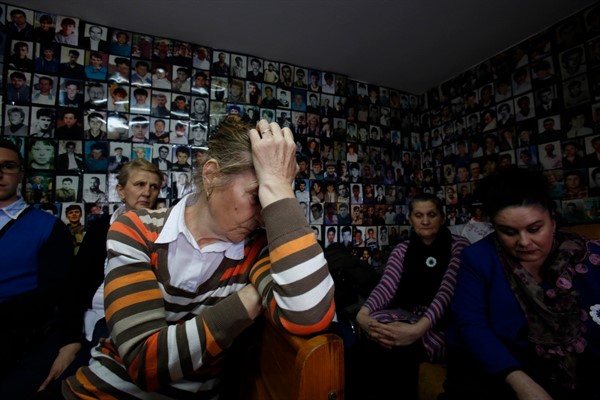Editor’s Note: This article contains descriptions of wartime violence and rape.
PRISTINA—It’s a cold morning in Rance, a mountainous village east of Kosovo’s capital, Pristina, and Isak Asllani is preparing to pay tribute at a memorial for his fallen family and friends. It is a painful ritual he carries out every Feb. 17 to mark the anniversary of Kosovo’s declaration of independence in 2008, and the end of decades of conflict in the former Yugoslavia.
Asllani was 40 years old in May 1998, when he decided to join the Kosovo Liberation Army, the ethnic Albanian, separatist guerilla group that fought to form an independent nation during the Yugoslav wars of the 1990s. He was hoping for a better future for his seven children, who ranged between 11 months and 12 years old. But soon after he enlisted, in August that year, he gathered his family onto a tractor and began driving it toward a forest in eastern Kosovo, trying to find a safer refuge for them, when they were suddenly attacked by a Serb tank.

